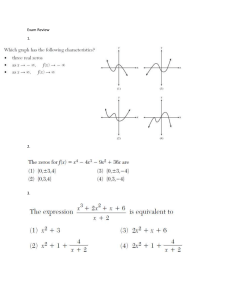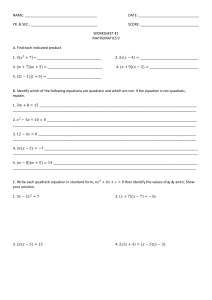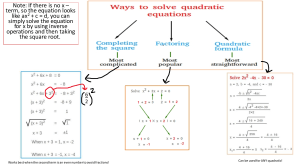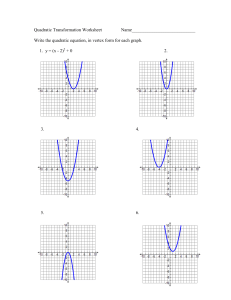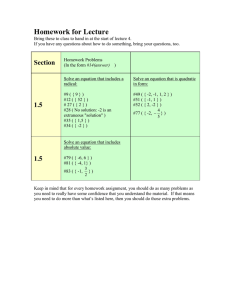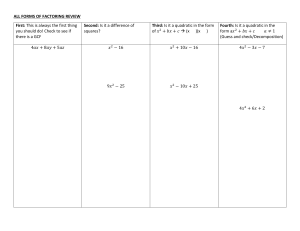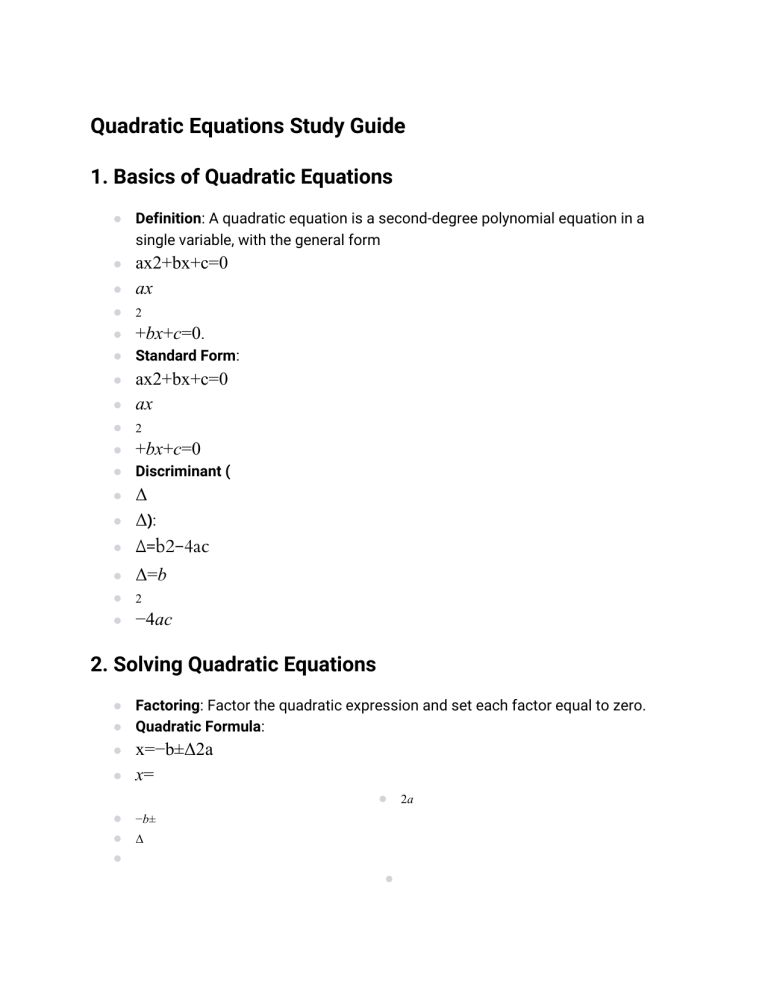
Quadratic Equations Study Guide 1. Basics of Quadratic Equations ● Definition: A quadratic equation is a second-degree polynomial equation in a single variable, with the general form ● ax2+bx+c=0 ● ax ● 2 ● +bx+c=0. ● Standard Form: ● ax2+bx+c=0 ● ax ● 2 ● +bx+c=0 ● Discriminant ( Δ ● Δ): ● Δ=b2−4ac ● ● Δ=b ● 2 ● −4ac 2. Solving Quadratic Equations ● Factoring: Factor the quadratic expression and set each factor equal to zero. ● Quadratic Formula: x=−b±Δ2a ● x= ● ● 2a ● −b± ● Δ ● ● ● ● Completing the Square: Convert the equation to the form (x−h)2=k ● (x−h) ● ● 2 ● =k and solve for ● x ● x. 3. Graphical Representation ● Graphing Quadratic Equations: Understand the shape and key features of the parabolic graph. ● Vertex Form: y=a(x−h)2+k ● y=a(x−h) ● ● 2 ● +k ● Vertex: The point ● (h,k) ● (h,k) is the vertex of the parabola. 4. Applications of Quadratic Equations ● Word Problems: Practice solving real-life problems using quadratic equations. ● Maximum and Minimum Values: Understand how to find the maximum or minimum value of a quadratic function. 5. Special Cases ● Perfect Square Trinomials: ● a2+2ab+b2=(a+b)2 ● a ● 2 ● +2ab+b ● 2 ● =(a+b) ● 2 ● ● Difference of Squares: a2−b2=(a+b)(a−b) ● a ● ● 2 ● −b ● 2 ● =(a+b)(a−b) ● Completing the Square: Transforming a quadratic expression to a perfect square trinomial. 6. Quadratic Inequalities ● Solving Quadratic Inequalities: Determine the intervals for which the inequality is satisfied. ● Graphical Representation of Inequalities: Understand how to represent quadratic inequalities on a number line.
